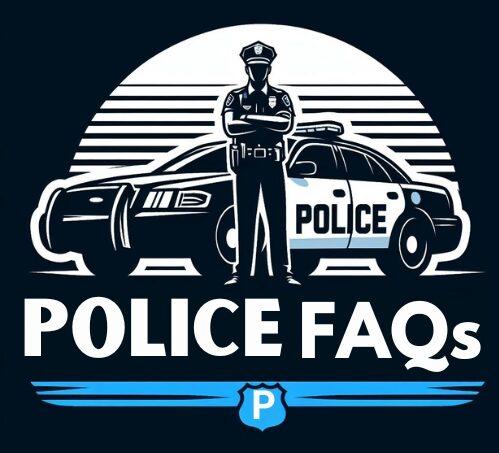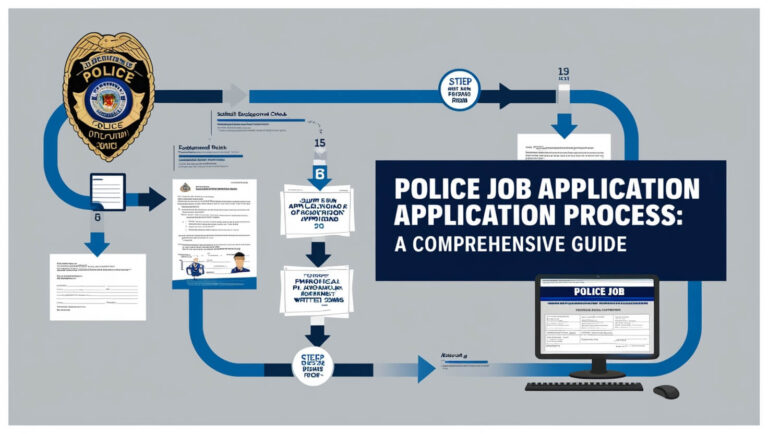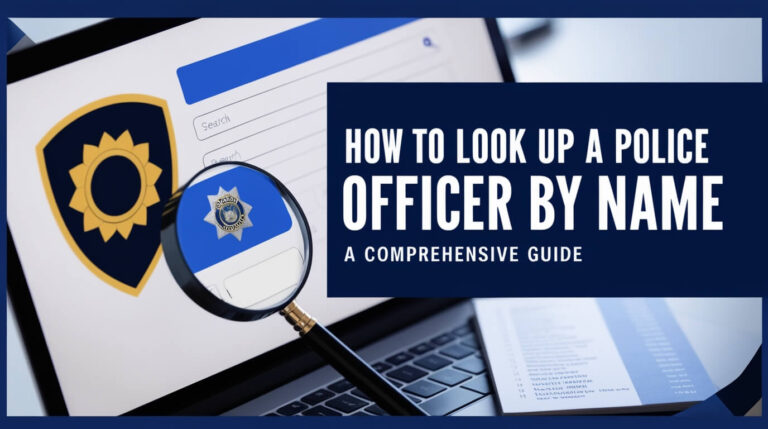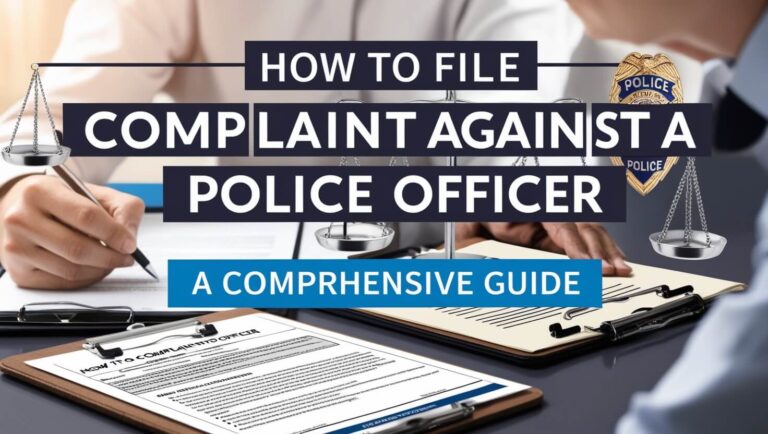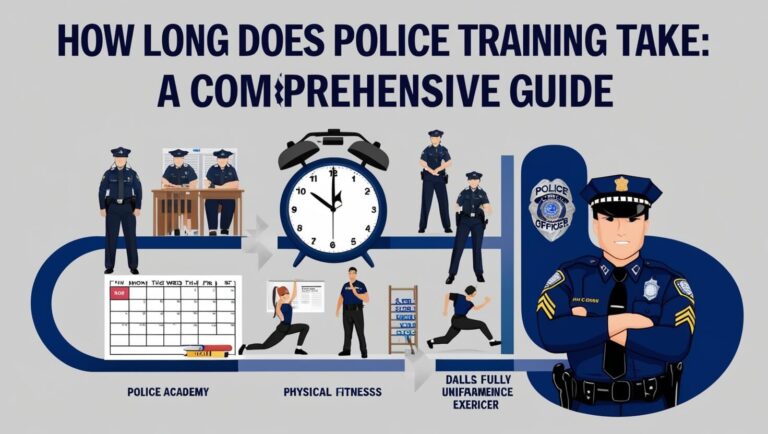What is Required to Become a Police Officer: Essential Guide
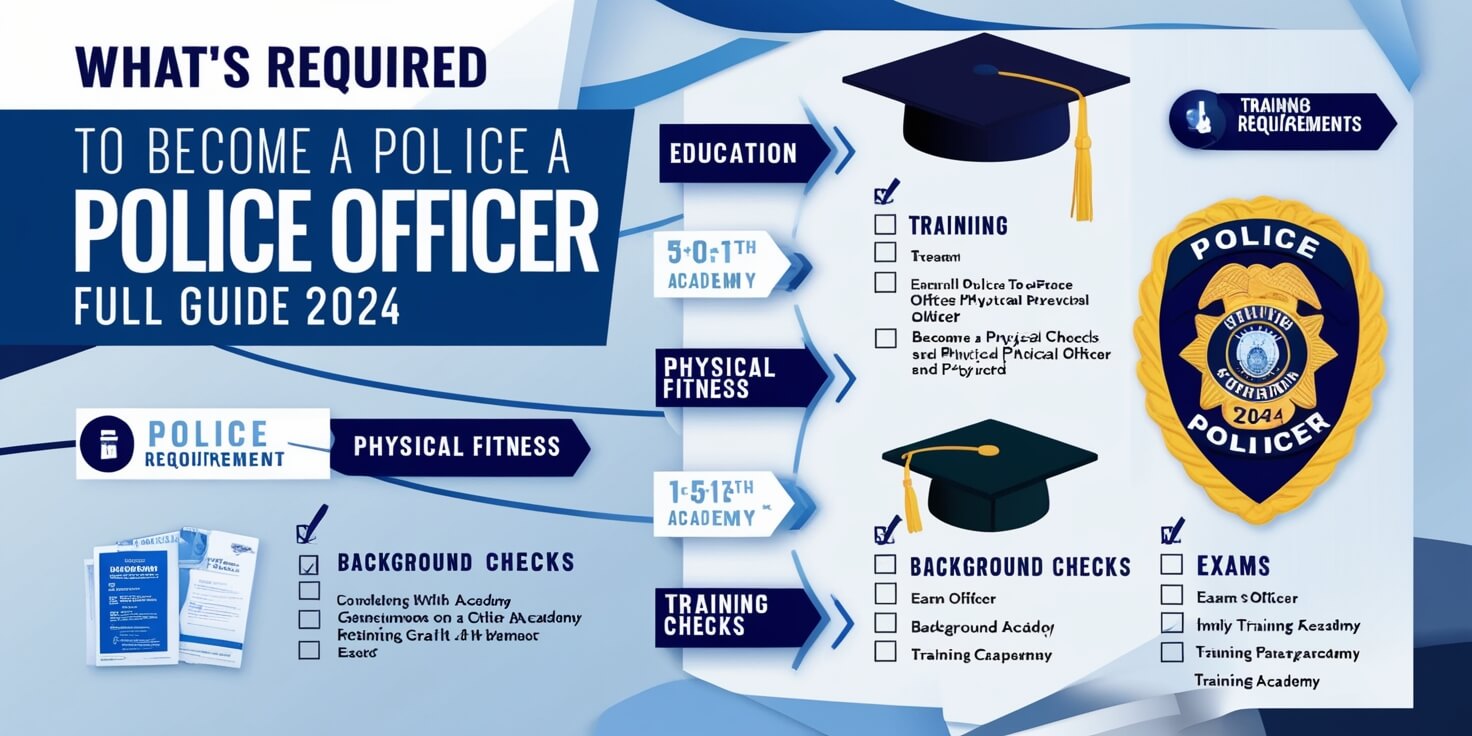
Becoming a police officer is a noble pursuit that requires dedication, specific qualifications, and rigorous training. To become a police officer, you’ll need to meet age and citizenship requirements, have a high school diploma or equivalent, pass physical and written exams, complete police academy training, and undergo background checks and psychological evaluations. This guide will walk you through the entire process, from basic eligibility to career advancement opportunities.
Basic Eligibility Requirements
Let’s start with the fundamental criteria you need to meet before considering a career in law enforcement.
Age Restrictions
Most police departments require candidates to be at least 21 years old. Some agencies may accept applicants as young as 18, but this is less common. There’s often no upper age limit, but your physical fitness will be a factor regardless of age.
Citizenship and Residency
You must be a U.S. citizen to become a police officer. Some departments also require you to live within city limits or a certain distance from the precinct. This ensures quick response times during emergencies.
Educational Qualifications
At minimum, you’ll need a high school diploma or GED. Many departments prefer candidates with some college education or a degree. We’ll dive deeper into educational pathways later.
Physical Fitness Standards
Police work is physically demanding. You’ll need to pass fitness tests that typically include:
- Running a set distance in a specific time
- Completing a certain number of push-ups and sit-ups
- Demonstrating adequate upper body strength
Staying in shape is crucial throughout your career, not just during the application process.
The Application Process
Once you meet the basic requirements, you’ll start the application process. This can be lengthy and involves several steps.
Initial Application Submission
You’ll fill out a detailed application form. Be honest and thorough – any discrepancies could disqualify you later.
Written Examination
This test assesses your knowledge of basic laws, reading comprehension, and problem-solving skills. Study materials are often available through the department or online resources.
Physical Ability Test
You’ll need to prove you’re physically fit for the job. The test usually includes tasks like:
- Sprinting and long-distance running
- Obstacle courses
- Dragging weighted dummies
Background Investigation
Expect a deep dive into your past. Investigators will check:
- Criminal records
- Credit history
- Employment background
- Personal references
Be upfront about any past issues. Honesty is crucial in law enforcement.
Essential Skills and Qualities
Certain traits make for successful police officers. While some can be learned, others are innate qualities that departments look for in candidates.
Communication Skills
You’ll interact with the public daily. Clear, effective communication is vital. This includes:
- Verbal skills for interviews and community interactions
- Writing skills for reports
- Active listening to gather information
Problem-Solving Abilities
Police officers face unique challenges every day. Quick thinking and creative problem-solving are essential. You’ll need to:
- Assess situations rapidly
- Make decisions under pressure
- Find solutions to complex issues
Emotional Intelligence
Dealing with high-stress situations requires emotional stability. Key aspects include:
- Empathy for victims and community members
- Self-control in tense situations
- Ability to de-escalate conflicts
Physical Stamina and Strength
The job can be physically demanding. You’ll need:
- Endurance for long shifts
- Strength for potential physical confrontations
- Agility for chase situations
Educational Pathways
While a high school diploma is the minimum requirement, further education can boost your chances and prepare you for the role.
High School Diploma or GED
This is the basic educational requirement. Focus on courses like:
- English
- Mathematics
- Social Sciences
Associate’s Degree in Criminal Justice
A two-year degree can give you an edge. You’ll study:
- Criminal law
- Police procedures
- Forensic science basics
Bachelor’s Degree Options
A four-year degree can open doors to advancement. Consider majors like:
- Criminal Justice
- Psychology
- Sociology
- Political Science
Military Experience
Many departments value military service. It can provide:
- Discipline and structure
- Firearms training
- Leadership experience
Police Academy Training
After selection, you’ll attend a police academy. This intensive training prepares you for the realities of police work.
Duration and Structure
Academy training typically lasts 13-19 weeks. It’s a full-time commitment with long days of physical and mental challenges.
Classroom Instruction
You’ll learn about:
- Constitutional law
- Local and state regulations
- Police ethics
- Community relations
Physical Training
Expect rigorous physical conditioning, including:
- Strength training
- Endurance exercises
- Self-defense techniques
Firearms and Tactical Training
You’ll become proficient in:
- Firearms safety and accuracy
- Non-lethal weapons use
- Tactical driving
- Building searches
Psychological Evaluation and Drug Screening
Police work is mentally demanding. Departments want to ensure you’re up for the challenge.
Mental Health Assessment
A psychologist will evaluate your mental fitness for the job. They’ll look for:
- Stress tolerance
- Decision-making under pressure
- Emotional stability
Personality Tests
These assess traits like:
- Integrity
- Teamwork ability
- Leadership potential
Substance Abuse Screening
You’ll undergo drug testing. Most departments have zero-tolerance policies for drug use.
Field Training and Probationary Period
After the academy, you’re not quite a full-fledged officer yet. You’ll go through field training and a probationary period.
On-the-Job Training
You’ll work with experienced officers to learn:
- Patrol procedures
- Local policies
- Community-specific issues
Performance Evaluation
Your supervisors will assess your:
- Application of academy training
- Decision-making skills
- Interaction with the public
Completion of Probation
The probationary period usually lasts 12-18 months. Successfully completing it means you’re officially a police officer.
Continuing Education and Career Advancement
Learning doesn’t stop once you’re on the force. Ongoing training and education are crucial.
Ongoing Training Requirements
You’ll need to complete regular training on:
- Updated laws and procedures
- New technology in law enforcement
- Crisis intervention techniques
Specialized Certifications
Opportunities for specialization include:
- Detective work
- K-9 handling
- SWAT team
- Cyber crime
Promotional Opportunities
Advancement often requires additional education and experience. Positions include:
- Sergeant
- Lieutenant
- Captain
- Chief of Police
State-Specific Requirements
While we’ve covered general requirements, each state has its own standards.
Variations in Minimum Standards
Some states might require:
- Higher education levels
- Specific physical fitness benchmarks
- Additional training hours
POST Certification
Peace Officer Standards and Training (POST) certification is required in most states. It ensures officers meet minimum standards.
Regional Differences
Urban and rural departments may have different focuses in their requirements and training.
Challenges and Rewards of Becoming a Police Officer
It’s important to understand both the difficulties and benefits of this career choice.
Job Demands and Stress Factors
Police work can be challenging due to:
- Irregular hours and shift work
- Exposure to dangerous situations
- Emotional toll of dealing with crime and victims
Community Impact and Service
Many officers find fulfillment in:
- Helping people in need
- Making their communities safer
- Being role models for youth
Career Satisfaction and Growth
Benefits often include:
- Job security
- Good benefits packages
- Opportunities for advancement
Technology in Modern Policing
Today’s police officers need to be tech-savvy.
Digital Skills Requirements
You’ll need to be comfortable with:
- Computer-aided dispatch systems
- Digital evidence management
- Social media monitoring
Adapting to New Law Enforcement Technologies
Stay prepared to learn about:
- Body cameras
- Advanced surveillance tools
- Data analysis for predictive policing
Diversity and Inclusion in Law Enforcement
Police departments are working to build forces that reflect their communities.
Initiatives for Diverse Recruitment
Many agencies are focusing on:
- Outreach to minority communities
- Women in policing programs
- Bilingual officer recruitment
Cultural Competency Training
Officers receive training in:
- Cultural sensitivity
- Bias recognition and mitigation
- Community-specific issues
Becoming a police officer is a challenging but rewarding journey. It requires physical fitness, mental acuity, and a strong desire to serve your community. From meeting basic eligibility requirements to ongoing training throughout your career, the path to becoming a police officer demands dedication and perseverance.
If you’re considering this noble profession, start by researching your local department’s specific requirements. Prepare yourself physically and mentally, and consider pursuing education in criminal justice or a related field. Remember, the skills and qualities that make a great police officer – integrity, courage, and compassion – are developed over time and through experience.
The road to becoming a police officer isn’t easy, but for those committed to public service and justice, it’s a fulfilling career choice. Are you ready to take on the challenge and make a difference in your community?
